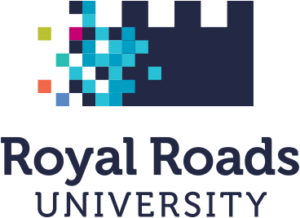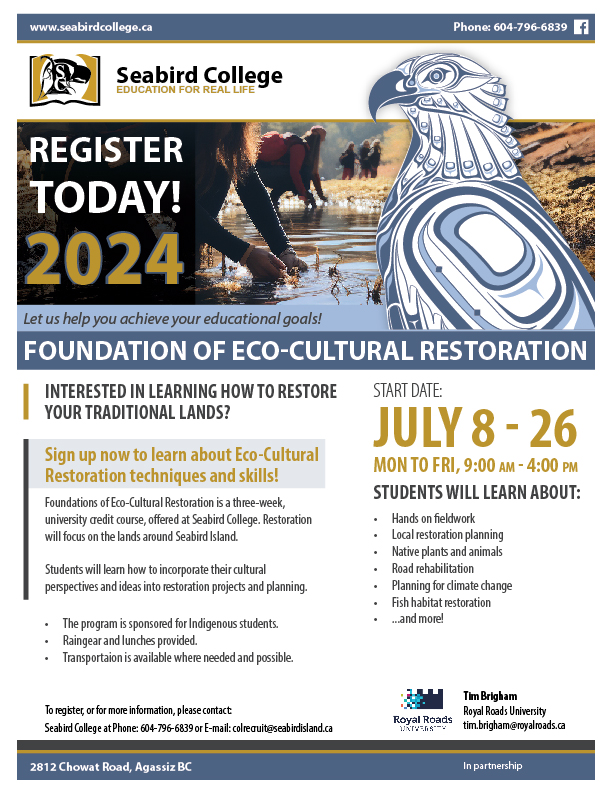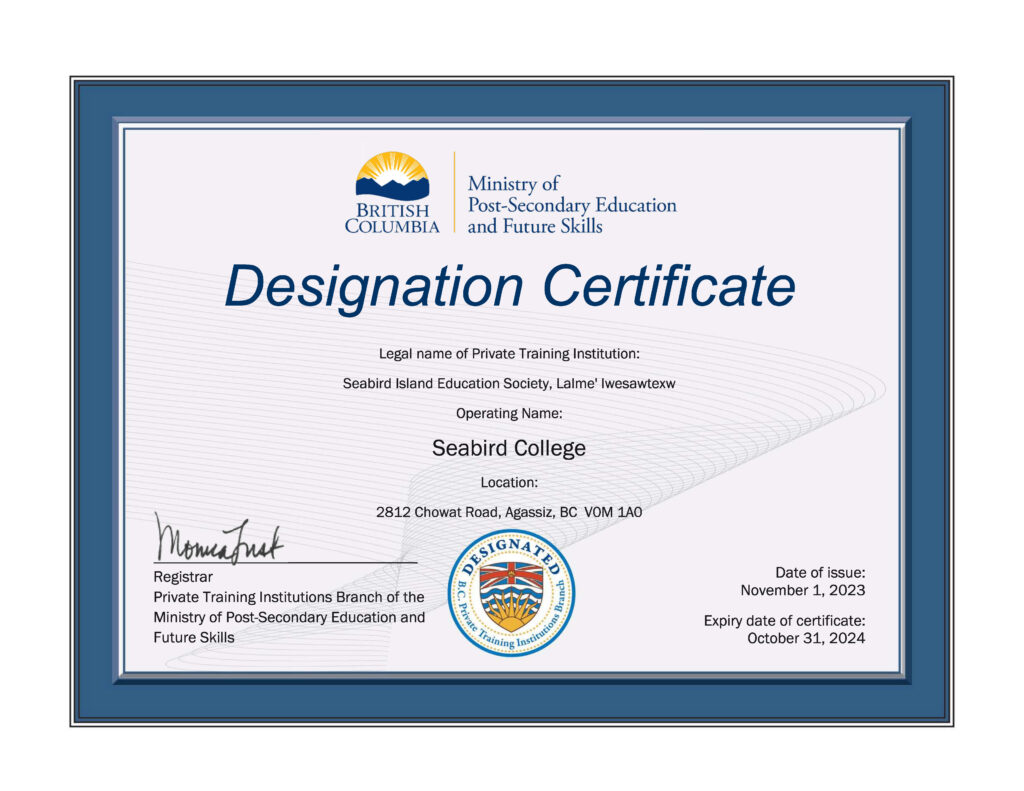Environment & Sustainability
Environment and Sustainability With Seabird College
Seabird College offers two complementary programs blending technical expertise and cultural perspectives in ecological restoration. The Ecological Restoration certificate develops hands-on skills in areas like habitat recovery and environmental monitoring, while Foundations of Eco-Cultural Restoration is a three-week, university course that teaches students to incorporate Indigenous knowledge into restoration projects. Designed for Indigenous participants, the eco-cultural program provides support like gear, lunches, and transportation. Together, these programs prepare students for roles in environmental sustainability, cultivating technical know-how and a culturally-grounded approach to stewarding the lands around Seabird Island.
Registration Now Open
Our Students Are Our Priority
Reception: 1-604-796-6839
Courses Offered in Partnership With

Start Date: July 8 – 26
FOUNDATION OF ECO-CULTURAL RESTORATION
Prerequisite(s): None. Note: Students should have basic English proficiency in order to be successful in this course.
Foundations of Eco-Cultural Restoration is a three-week, university credit course, offered at Seabird College. Restoration will focus on the lands around Seabird Island.
Students will learn how to incorporate their cultural perspectives and ideas into restoration projects and planning.
• The program is sponsored for Indigenous students.
• Rain-gear and lunches provided.
• Transportation is available where needed and possible.
Applications Are Now Closed
ECOLOGICAL RESTORATION CERTIFICATE
Prerequisite(s): Completion of Grade 10
Seabird College’s Ecological Restoration certificate is focused on developing practical field work abilities with the majority of instruction taking place hands-on in natural environments. Students build expertise in geographic information systems, fish habitat restoration, core ecological recovery concepts, environmental monitoring, and data management while earning industry-recognized credentials. The well-rounded curriculum covers critical competencies from site analysis and conservation biology foundations through to advanced sampling methodologies, assessment reporting, project communications, and more to prepare graduates for entry-level roles supporting environmental sustainability initiatives.


